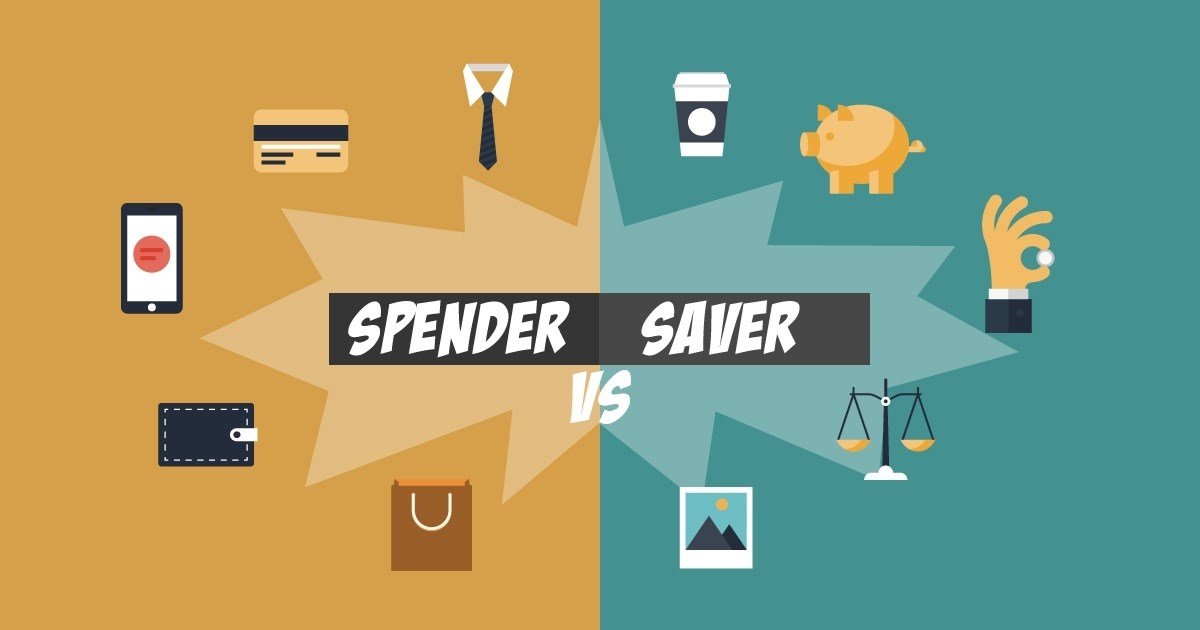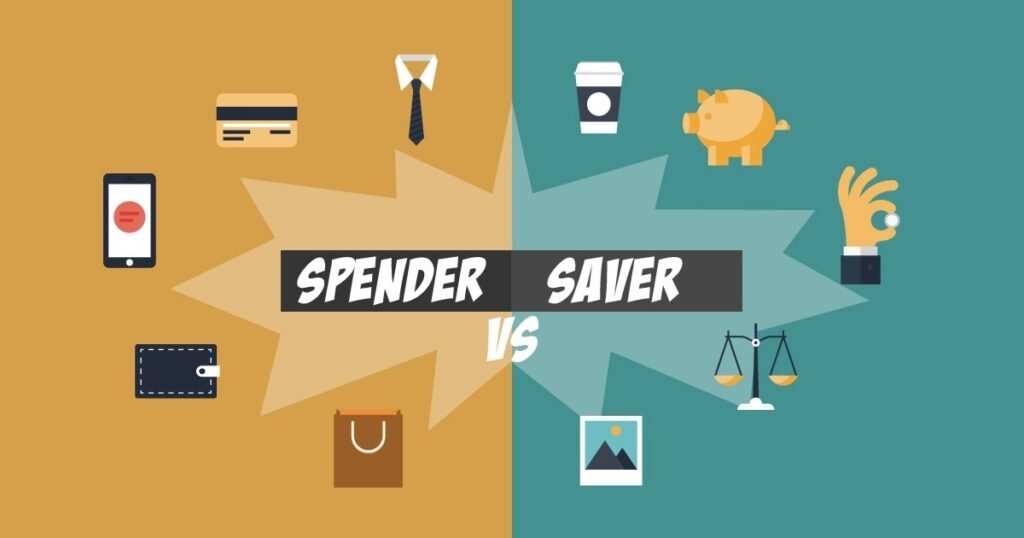Your cart is currently empty!

why should you be aware of whether you are a saver or a spender? Understanding your financial personality—whether you are a saver or a spender—can be a game-changer for your financial health and overall well-being. While it may seem like a simple label, knowing which category you lean toward is the first step to building a balanced approach to money management. Here’s why being aware of your tendencies is crucial.
Self-Awareness Shapes Financial Success
Being aware of your natural inclination—whether to save or spend—helps you understand your financial behavior. Savers may be cautious with their funds, often focusing on future security, while spenders may prioritize immediate gratification, valuing experiences and material goods. This awareness enables you to make informed decisions, aligning your actions with your long-term goals.
Helps Avoid Financial Pitfalls
Spenders might struggle with overspending and accumulating debt, while savers risk becoming overly frugal, missing out on enjoyable experiences. Recognizing these tendencies helps mitigate the downsides. For example:
- A spender can create a budget to ensure discretionary spending stays within limits.
- A saver can allocate funds for “fun” without guilt, fostering a healthier relationship with money.
Builds Stronger Relationships
Money is a common source of tension in relationships, especially when partners have different financial habits. If you’re a spender but your partner is a saver, or vice versa, conflicts can arise. Being aware of your financial personality allows for open communication, compromise, and a shared plan that works for both parties.

Encourages Goal Setting why should you be aware of whether you are a saver or a spender?
Understanding whether you are a saver or spender helps you set realistic financial goals.
- Savers: You can challenge yourself to spend on things that genuinely add value to your life, like travel or hobbies.
- Spenders: You can set up savings goals for emergencies, retirement, or big-ticket items, creating balance in your financial life.
Allows You to Leverage Your Strengths
Both savers and spenders have strengths that can be harnessed.
- Savers are naturally disciplined and good at planning for the future.
- Spenders are often generous and skilled at finding joy in the present.
By acknowledging these traits, you can optimize your strengths while addressing weaknesses.
Promotes Financial Stability
Being self-aware allows you to take proactive steps to achieve financial stability. For example, savers can learn to invest their money wisely to grow their wealth, while spenders can use tools like automated savings to ensure they’re not left financially vulnerable.
Sets the Foundation for Long-Term Growth
Financial self-awareness isn’t just about avoiding pitfalls—it’s about building a life that aligns with your values. By balancing saving and spending, you create opportunities to enjoy life now while securing your future.
Conclusion about why should you be aware of whether you are a saver or a spender?
Whether you’re a saver, a spender, or somewhere in between, being aware of your financial personality is the key to smarter money management. It allows you to take control of your finances, foster healthier relationships, and build a more fulfilling life. Start by assessing your habits, then make small adjustments to strike the right balance. With awareness and effort, you can create a financial strategy that works for you, regardless of your natural tendencies.
FAQs: Understanding Whether You’re a Saver or a Spender
1. Why is it important to know if I’m a saver or a spender?
Answer:
Knowing your financial personality helps you understand your money habits, avoid pitfalls like overspending or being overly frugal, and strike a healthy balance. This awareness allows you to align your actions with long-term financial goals while enjoying the present.
2. Can a person be both a saver and a spender?
Answer:
Yes, many people exhibit traits of both savers and spenders depending on the situation. The key is recognizing your tendencies in various scenarios and striving for a balanced approach to financial decision-making.
3. How can a spender become better at saving money?
Answer:
Spenders can benefit from creating a budget, setting specific savings goals, and automating savings transfers. It’s also helpful to differentiate between “wants” and “needs” to prioritize spending and minimize impulse purchases.
4. What challenges do savers face, and how can they overcome them?
Answer:
Savers often struggle with spending on themselves, even for meaningful experiences or needs. To overcome this, they can create a discretionary spending budget, reminding themselves that spending on enjoyable or enriching activities is part of a balanced financial life.
5. How can couples with different financial personalities work together?
Answer:
Open communication is key. Couples should discuss their habits, set shared financial goals, and agree on a plan that respects both perspectives. For instance, they could allocate a portion of their budget for saving and another for spending, ensuring each partner feels heard and valued.







Leave a Reply